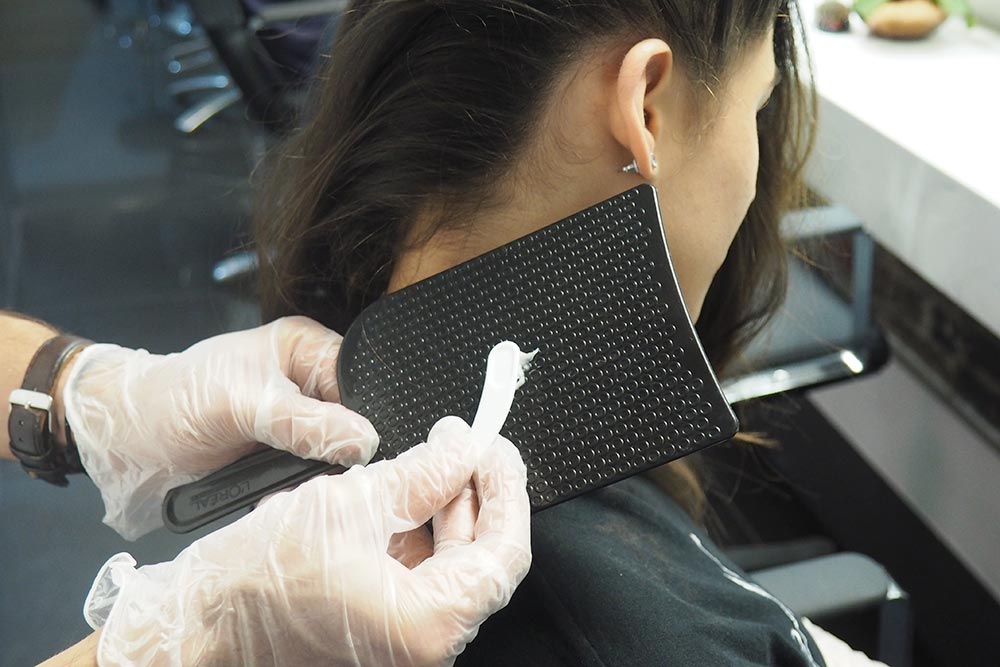In the fast-paced world of beauty and aesthetics, it’s often the small details that matter most. Patch testing might not be the most exciting part of your client journey, but it’s one of the most important steps you can take to protect your clients and your business.
A simple patch test can mean the difference between a smooth, confident treatment and a costly reaction that could damage your reputation or even lead to an insurance claim.
At Beauty Insured, we see first-hand just how powerful this little step can be.
What Is Patch Testing and Why It Matters
Patch testing is the process of applying a small amount of product to your client’s skin usually behind the ear or on the inner arm to check for any allergic or adverse reactions before carrying out a full treatment.
It’s a key part of your client safety protocol, helping to identify sensitivities that might not be immediately obvious. Whether you’re using tint, lash glue, hair dye, or certain skincare actives, patch testing gives you vital reassurance that your products are safe for that individual client.
It’s also a sign of professionalism. Taking the time to patch test shows that you care about your clients’ wellbeing and are committed to best practice something clients increasingly value in a competitive, trust-driven industry.
When and How Often Should You Patch Test?
Every product and manufacturer has its own guidance, but as a general rule:
- Before a client’s first treatment using a new product.
- When changing brands or formulas, even if the ingredients look similar.
- After a long break in treatment, as client sensitivities can change over time.
- If your client’s health or medication changes, as this can affect skin reactivity.
It’s essential to follow the manufacturer’s patch testing instructions exactly. This doesn’t just protect your client it also ensures your insurance remains valid.
If a claim arises and you haven’t carried out a required patch test (or can’t provide proof that you did), your insurer may not be able to cover you. A signed record or note on your consultation form can save you a great deal of stress later on.
The Insurance Angle – Protecting Your Business
At Beauty Insured, one of the most common themes we see in claims is allergic or adverse reactions and in many cases, these could have been avoided with a simple patch test.
Skipping a patch test might feel like a time-saver, but it can have serious consequences. If a client experiences a reaction and you haven’t followed the manufacturer’s or insurer’s patch testing requirements, your policy could be at risk.
Insurance is there to protect you when things go wrong but it also relies on you meeting your professional responsibilities. Patch testing is one of the easiest ways to demonstrate that you’ve done everything possible to keep your client safe.
Building Client Trust Through Safety
Patch testing isn’t just about compliance it’s also a great opportunity to strengthen client trust.
Take the time to explain why patch testing matters. Let clients know that this small step is for their safety and that it ensures the best results from their treatment. Most clients appreciate the extra care and professionalism.
Make it part of your standard client journey:
- Record every test.
- Communicate results clearly.
- Keep patch testing consistent, even with your most loyal, long-term clients.
Clients remember how you make them feel and being proactive about their safety is a powerful way to build loyalty and credibility.
The Bottom Line
A patch test takes minutes, but the protection it offers lasts much longer. It safeguards your clients, supports your insurance cover, and upholds your reputation as a safe and responsible practitioner.
So, before you reach for that tint, glue, or serum, take the time to patch test. It’s one of the simplest, smartest steps you can take to protect your beauty business.
At Beauty Insured, we’re here to help you stay covered and confident.
Find out more about our specialist insurance for beauty and aesthetics professionals at www.beautyinsured.co.uk

